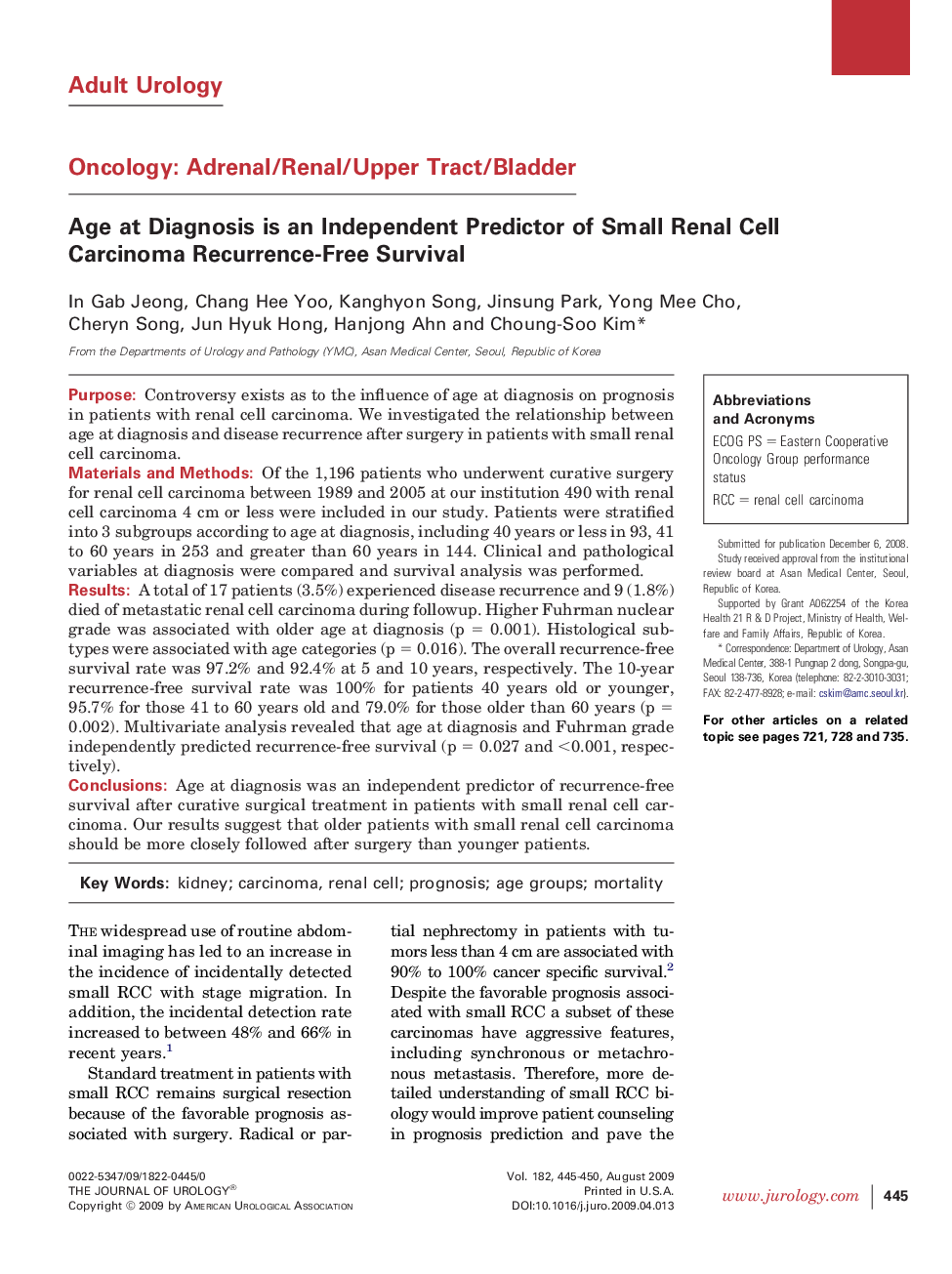| Article ID | Journal | Published Year | Pages | File Type |
|---|---|---|---|---|
| 3874141 | The Journal of Urology | 2009 | 6 Pages |
PurposeControversy exists as to the influence of age at diagnosis on prognosis in patients with renal cell carcinoma. We investigated the relationship between age at diagnosis and disease recurrence after surgery in patients with small renal cell carcinoma.Materials and MethodsOf the 1,196 patients who underwent curative surgery for renal cell carcinoma between 1989 and 2005 at our institution 490 with renal cell carcinoma 4 cm or less were included in our study. Patients were stratified into 3 subgroups according to age at diagnosis, including 40 years or less in 93, 41 to 60 years in 253 and greater than 60 years in 144. Clinical and pathological variables at diagnosis were compared and survival analysis was performed.ResultsA total of 17 patients (3.5%) experienced disease recurrence and 9 (1.8%) died of metastatic renal cell carcinoma during followup. Higher Fuhrman nuclear grade was associated with older age at diagnosis (p = 0.001). Histological subtypes were associated with age categories (p = 0.016). The overall recurrence-free survival rate was 97.2% and 92.4% at 5 and 10 years, respectively. The 10-year recurrence-free survival rate was 100% for patients 40 years old or younger, 95.7% for those 41 to 60 years old and 79.0% for those older than 60 years (p = 0.002). Multivariate analysis revealed that age at diagnosis and Fuhrman grade independently predicted recurrence-free survival (p = 0.027 and <0.001, respectively).ConclusionsAge at diagnosis was an independent predictor of recurrence-free survival after curative surgical treatment in patients with small renal cell carcinoma. Our results suggest that older patients with small renal cell carcinoma should be more closely followed after surgery than younger patients.
